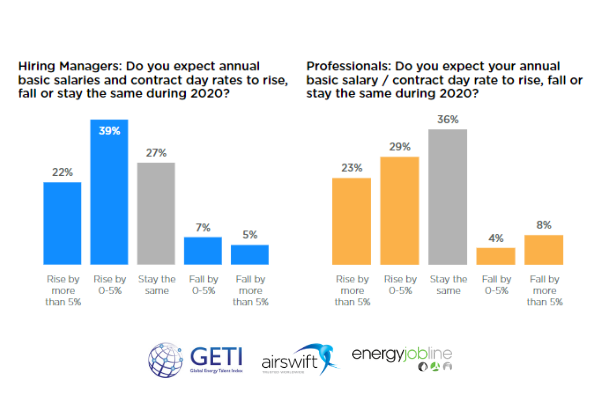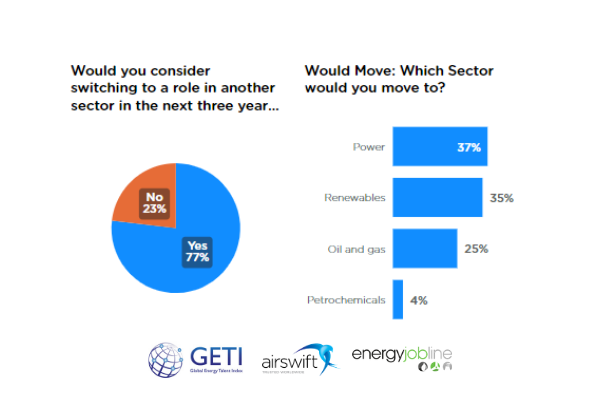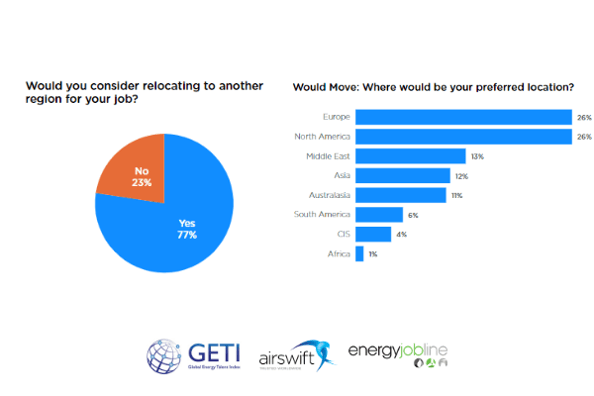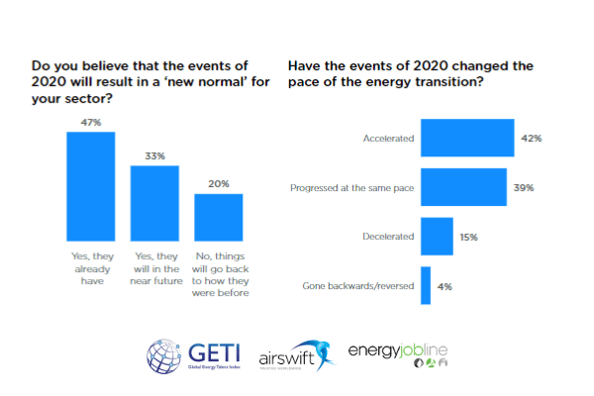By
Joe Crockett
February 8, 2021
Updated
February 27, 2024
Despite project delays and cancellations due to the COVID-19 pandemic, the nuclear industry fared well in 2020.
According to the fifth annual Global Energy Talent Index (GETI) report, professionals in the sector feel secure, confident and focused on their work. But what employment trends and opportunities should hiring managers look out for in 2021?
Nuclear worker pay expectations

An optimistic outlook for the nuclear power industry means employees are feeling confident about remuneration.
According to the 2021 GETI report, just under half (47%) of non-hiring professionals reported that their salaries stayed the same in 2020. Although 36% don’t expect to see any change in salary during 2021, more than half (52%) believe that their pay will increase.
Director of Energy Jobline, Josh Young, says that the lack of current salary increase could be due to slightly different opportunities facing the nuclear sector. He suggests that the skills gap driving salaries up elsewhere in the industry is not being felt so acutely by the nuclear sector. Rather, the incoming investment and creation of jobs in the near future is highlighting new opportunities for progression and salary increases.
Career mobility in the nuclear sector

The GETI report revealed that 77% of nuclear employees would consider switching to a role in another sector within the next three years. The biggest reasons cited for moving to a different sector were:
- Interest in the wider sector
- Opportunities for career progression
- Innovation
- Technology
The sectors that nuclear professionals were most keen to move to were power (37%) and petrochemicals (35%). Interest in oil and gas has dropped since last year, with only 25% of respondents saying they would consider moving to that sector (compared to 30% last year).
Despite the interest in other sectors, however, we have yet to see many professionals make the switch from nuclear to another industry.
What’s also encouraging to see is that nuclear professionals are still enthusiastic about careers in their sector, with 63% saying they would pursue a career in nuclear if they were to enter the industry today.
Global mobility for nuclear professionals

Of all the sectors within the energy industry, nuclear professionals are the least inclined to relocate to another region. 77% of respondents said they would consider relocating for work, compared to 88% across all sectors.
This could be because the nuclear workforce is made up of fewer expats than the other sectors. According to CEO of Airswift, Janette Marx, countries have a keen interest in making sure local citizens have the necessary skills to run complex plants, and the steady pace of the nuclear industry attracts families to settle in one area.
Those who said they would move to another region for work were most attracted to Europe and North America, followed by the Middle East. The biggest motivation for moving was the expectation of career progression opportunities (28%), closely followed by lifestyle and living cost (24%). This was the highest score for lifestyle factors across all the sectors, suggesting that nuclear professionals are more interested in striking a balance between their work and home lives.
For hiring managers, this suggests that one of the best options to attract expat talent will be to highlight the long-term benefits of relocation, emphasising the qualities that make their country or region an attractive place to settle.
A ‘new normal’ for the nuclear sector

The majority (47%) of nuclear professionals believe that the events of 2020 have already created a ‘new normal’ for their sector, naming workspace flexibility as the biggest change shaping this.
65% of nuclear employees expect workspace flexibility to form a part of their working lives in the future, a higher percentage than any other sector. This again highlights the heightened interest in work-life balance across the sector.
Encouragingly, only 1 in 5 nuclear professionals feel that the transition to clean energy has contracted, with the majority reporting positive progress. That said, it does suggest that the transition is not being felt as strongly in nuclear as it is in other sectors.
Find out more in the 2021 GETI report
Find out more about the top energy recruitment trends for 2021 and beyond. Click below to download your copy of the 2021 GETI report.

